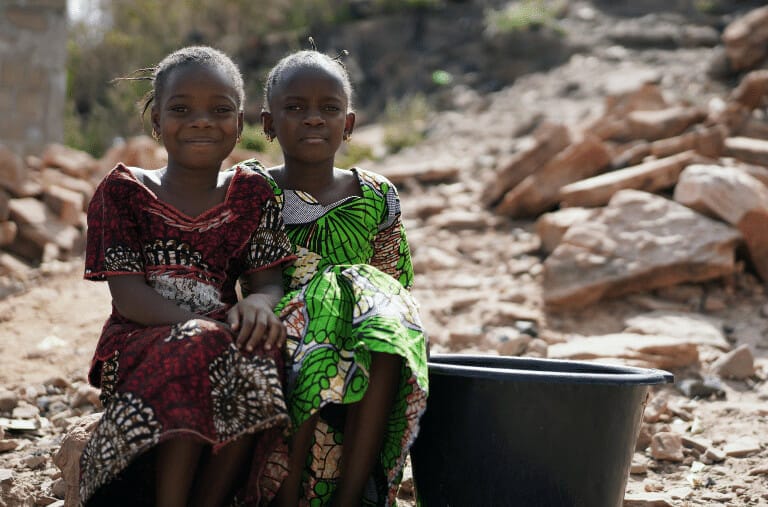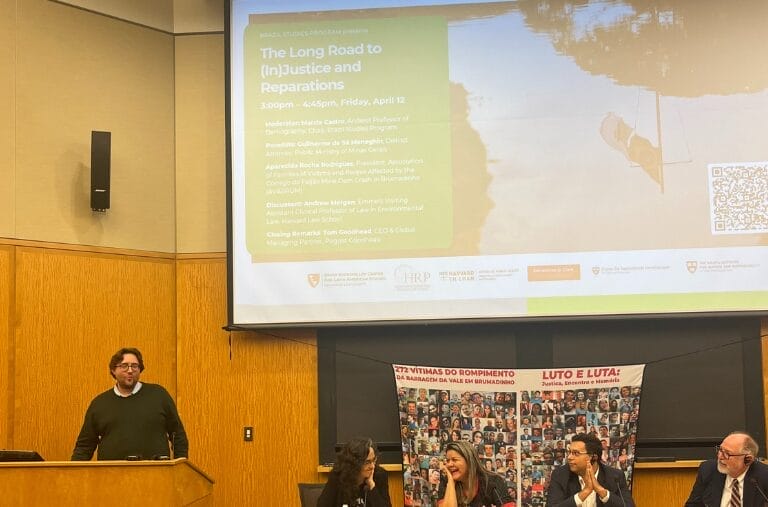In a seminal judgment delivered on 12 February 2021, the UK Supreme Court in Okpabi unanimously ruled in favour of the appellants in a group litigation involving Royal Dutch Shell Plc (“RDS”) and 42,500 members of the Ogale and Bille communities in Nigeria who suffered from ongoing oil pollution emanating from the oil pipeline infrastructure operated by RDS’s subsidiary in Nigeria, Shell Petroleum Development Company of Nigeria Limited (“SPDC”).
The Supreme Court’s ruling will allow the Nigerian claimants to continue pursuing their damages claims against both RDS and SPDC in the English courts, subject to further jurisdictional challenges that SPDC might raise.
Summary of the ruling
For a summary of the Supreme Court’s judgment in Okpabi, please refer to our earlier blog post covering some of the key points from the ruling.
This follow-up article delves deeper into specific aspects of the Supreme Court’s judgment and provides a detailed commentary on its implications for the future of group litigation and jurisdictional challenges in England. The article also discusses the interplay between Okpabi and earlier similar litigations in both the UK and in the Netherlands.
Background – the Vedanta litigation and the decisions of the lower courts in Okpabi
At first sight, the Okpabi ruling appears to be a mere reaffirmation by the Supreme Court of its earlier judgment in Vedanta Resources PLC and another (Appellants) v Lungowe and others (Respondents) [2019] UKSC 20, where it was decided on a strikingly similar set of facts that there was an arguable case that the parent company Vedanta owed a duty of care to the Zambian claimants in respect of the environmental damage caused by its Zambian subsidiary KCM.
Indeed, Lord Hamblen opened his judgment in Okpabi by remarking that “It might reasonably have been expected that the guidance provided by [the Vedanta] decision would resolve this appeal without the need for a hearing.”
Nonetheless, there are important differences between the two cases which serve to emphasise the significance of Okpabi and demonstrate that the ruling was a material development of the law, rather than a mere reaffirmation of Vedanta:
• No express assumption of responsibility
Firstly, in contrast to RDS, not only had the parent company in Vedanta taken active steps to ensure that its environmental policies were enforced in Zambia, including by publicly assuming responsibility for the environmental compliance of its subsidiary (see [61] of Vedanta), but there were also serious concerns about the solvency of the subsidiary and overriding considerations with regards to access to justice in Zambia which weighed in favour of allowing the claim to proceed in England.
RDS had not made any such public undertakings with respect to SPDC, nor did the Supreme Court need to consider whether substantial justice could be obtained in Nigeria. There were no concerns at all about the solvency of SPDC. The respondents in Okpabi emphasised all of these differences to Vedanta in their submissions to the Supreme Court.
Nonetheless, the claim against RDS was allowed to proceed in England, almost exclusively on the basis that its corporate governance literature (as corroborated by the evidence from whistle-blowers) suggested that RDS exercised “significant control” over SPDC. This is important, as whilst in Vedanta the Supreme Court merely did not rule out the possibility of parent company duty of care arising solely from corporate governance literature, the Supreme Court in Okpabi actually decided the case primarily on that basis (see [153]- [157]), breaking new ground.
• Decisions of the lower courts overturned
Secondly, the Supreme Court in Vedanta simply affirmed the rulings of the lower courts to the effect that an arguable case against the parent company was shown to exist. In Okpabi, the Supreme Court overruled, in very unequivocal terms, the judgments of both the High Court and the Court of Appeal.
Decisions on jurisdictional applications such as these are very rarely overturned by the UK’s highest court. This only happens where the lower courts are shown to have made a serious error of law, rather than erring in their assessment of the evidence and the application of the law to the facts at hand.
The judgment in Okpabi therefore leaves no room for doubt that parent company duty of care is here to stay and that it cannot be argued that Vedanta would be a decision confined to its own special facts.
• Additional clarifications
Thirdly, Okpabi went significantly further than Vedanta in clarifying what the exact evidential burden is on claimants wishing to invoke the parent company’s responsibility for the activities of its subsidiary abroad. In doing so, it emphasised that, at the preliminary stage of establishing the court’s jurisdiction, the practical difficulties faced by claimants in obtaining the evidential material needed to support their legal arguments must not be ignored.
Commentary of the Okpabi judgment
• Evidential burden, disclosure and wider implications for jurisdictional applications
Before going into the issue of parent company duty of care, it is worth emphasising the importance of the general guidance provided by the Supreme Court’s ruling in Okpabi to lower courts on how to deal with the parties’ evidence in jurisdictional applications concerned with the question on whether there is an “arguable case” against an anchor defendant.
A number of take-away points arise from the Supreme Court’s judgment in this regard. Crucially, these points are relevant beyond cases dealing with parent company duty of care and will have ramifications in international litigation of this kind more generally.
• A jurisdictional hearing should not turn into a ‘mini-trial’
The first key take-away point is that the court should resist the temptation of treating jurisdictional applications as if they were a mini-trial.
The difficulties faced by first instance courts in jurisdictional hearings in terms of assessing the merits of a claim without the benefit of hearing the witnesses and experts undergoing cross-examination are widely recognised.
In Okpabi, both the first instance judge and the Court of Appeal had fallen into the trap of attempting to resolve this difficulty by assessing the relative weight of the parties’ evidence and the credibility of each individual witness. A short shrift was, however, given by the Supreme Court to this approach.
The judgment made it clear, firstly, that it is not open to the court at a preliminary jurisdictional hearing to make factual “findings” on contested issues of fact when confronted with conflicting factual evidence (see specifically [109]-[110]; [120]).
In particular, it is not open to the first instance court in such circumstances to discount particular items of witness evidence, unless the factual averments contained in them are shown to be “demonstrably untrue or unsupportable” ([22], [107], [153]). This would only be permissible in rare cases where the relevant witness statements contradict all the documents or material on which they are based ([110]).
• The claimants’ pleadings should be sufficient to determine if there is an arguable case
Secondly, the Supreme Court noted that where a jurisdictional challenge is mounted on the basis that there is no arguable case against the anchor defendant, this matter should be resolved primarily by reference to the Claimants’ pleaded case, not on the basis of a detailed assessment of the factual evidence ([103], [104], [109]).
Crucially, the Supreme Court reiterated that, so long as the claimants’ claim meets the summary judgment test of real prospect of success, which again ought to be judged on the basis that the factual averments made in the particulars of claim ought to be accepted as true unless they are “demonstrably untrue or unsupportable”, then the claim should be allowed to proceed to full trial.
This useful clarification will, in future cases, significantly lighten the evidential burden on claimants at the jurisdictional stage.
• The importance of disclosure of internal corporate documents should not be disregarded
The third key take-away point from the Supreme Court’s ruling is about the importance of disclosure of internal corporate documents. In both Okpabi and Vedanta, the claimants were in the unenviable position of having to establish an arguable case that the parent company exercised de facto control over its subsidiary company, without having access to any of the internal corporate documents that could prove this.
Such confidential documents could include e-mails, minutes from meetings and other internal documents that were in the Defendants’ sole possession and which were not required to be disclosed until the claim proceeded to full trial.
At the jurisdictional stage, therefore, the claimants had to rely on publicly available documentation and evidence from whistle-blowers to prove that their case against the parent company was arguable. Recognising the difficulty that the claimants found themselves in, the Okpabi ruling of the Supreme Court severely criticised the lower courts for having made premature findings of fact on issues which can only properly be resolved following full disclosure ([121]-[122] and [126]-[128]).
The Supreme Court emphasised that the correct approach to the question of disclosure in preliminary hearings is to determine whether there are “reasonable grounds for believing that disclosure may materially add to or alter the evidence relevant to whether the claim has a real prospect of success” ([128]).
This test sets the threshold quite low, further alleviating the evidential burden that claimants must satisfy at the jurisdictional stage to be allowed to proceed to trial.
• Duty of care: no “special test”
The three take-away points discussed above, as already emphasised, are important to jurisdictional hearings generally. That said, the Okpabi ruling is no doubt specifically relevant to cases in which the parent company liability for the acts of its subsidiaries abroad, based on common law duty of care, is in question.
The Supreme Court in Okpabi clarified, reaffirming its earlier ruling in Vedanta, that there is no “special test applicable to the tortious responsibility of a parent company for the activities of its subsidiary” and that it is inappropriate to “shoehorn into specific categories” all cases where the liability of parent companies in such cases might arise ([27]).
The Supreme Court stressed that, in this respect, “control is just a starting point” and that there can be circumstances in which tortious liability might be incurred by the parent company even where it does not in fact exercise control over the subsidiary, for example in situations where it publicly holds itself out as exercising such control (see [147]-[148]).
Importantly, Lord Hamblen ruled that the Court of Appeal had erred in law by applying the Caparo v Dickman test to determine whether RDS arguably owed a duty of care to the Claimants, as this test is concerned with whether a duty of care can be found to arise in a novel situation not previously recognised in the case law on negligence.
Reiterating its earlier ruling in Vedanta, the Supreme Court held that the liability of parent companies in relation to the activities of their subsidiaries is not a new or distinct category of liability in common law negligence and raises no novel issues of law ([25]). Therefore, the Caparo test was of no relevance and should not have been applied in this situation. In relation to the particular facts of the case, the Supreme Court in Okpabi analysed the functioning of RDS as the ultimate parent of the entire international Shell group, and the way in which the group operated.
In its assessment of the RDS Control Framework and RDS HSSE Control Framework, which formed part of RDS’s internal corporate governance documentation, the Supreme Court considered it highly significant that the Shell group had a vertical structure and was organised along business and functional lines rather than simply according to corporate status ([156]) and that the CEO of RDS had wide-ranging responsibilities and powers with regards to all global facilities and assets forming part of the Shell group.
Without making a finding of fact on the issue of control, the Supreme Court concluded that these documents were sufficient evidence that there was a “real issue to be tried” against RDS.
By reaffirming and elaborating on its ruling in Vedanta, and by rejecting the application of the stricter Caparo test, the Supreme Court in Okpabi made it abundantly clear that it is wrong to adopt a narrow or restrictive approach to the question of parent company duty of care, leaving the doors wide open for claimants to bring claims against English-domiciled parent companies with subsidiaries overseas.
The Dutch dimension: ruling in Milieudefensie et al. v Royal Dutch Shell plc
Another interesting aspect of the Okpabi ruling of the UK Supreme Court is that it was rendered shortly after a decision by the Dutch Court of Appeal in a separate set of proceedings in the Netherlands that involved the same defendant companies (RDS and SPDC) and claimants from the Oruma and Goi communities in the Nigerian Delta.
The facts of the Dutch case were broadly the same as those in Okpabi. The case concerned claims arising out of damage to the environment and to the health and livelihoods of the claimants caused by oil leaks from the pipelines operated by SPDC.
The Dutch Court of Appeal of the Hague rendered a judgment against both RDS and SPDC in Milieudefensie et al. v Royal Dutch Shell plc only two weeks prior to the Okpabi decision, on 29 January 2021.
The Dutch Court of Appeal applied English case law, including Vedanta, to the facts of the case and concluded that RDS owed a duty of care to the claimants for the acts and omissions of SPDC. Interestingly, the Supreme Court in Okpabi and the Court of Appeal in Milieudefensie expressed diverging views on the correct interpretation of the principles of parent company duty of care arising from Vedanta. Whilst in Okpabi, the Supreme Court found that there is no “special test applicable to the tortious responsibility of a parent company for the activities of its subsidiary” ([27]), the Dutch Court of Appeal in Milieudefensie understood Vedanta to mean that the Caparo v Dickman test was applicable.
In light of Vedanta and the clarifications provided by the Supreme Court in Okpabi, the Dutch Court of Appeal in Milieudefensie appears to have committed an error of law in its approach. On a potential appeal, it will be interesting to see whether the Dutch Supreme Court would adopt the same approach as the Hague Court of Appeal, or choose to follow the UK Supreme Court’s latest ruling in Okpabi.
Importantly, by contrast to the Okpabi ruling of the UK Supreme Court which dealt purely with jurisdictional issues, the Dutch Court of Appeal in Milieudefensie ruled on the merits of the case and found that RDS and SPDC were both liable for the damage and losses suffered by claimants as a result of the various oil spills.
The Hague Court of Appeal found that the acts and omissions of RDS and SPDC constituted a breach of the duty of care that they owed to the claimants, as they had inadequately responded to the leaks and had failed to take appropriate preventative measures to ensure that the leaks do not occur in the first place.
Of note is, however, that while the jurisdiction of the Dutch courts over the claims was already established in an interlocutory decision in Milieudefensie, it could still be contested before the Dutch Supreme Court by virtue of the Dutch procedural rules on jurisdiction. In contrast, the claims against RDS in England will proceed to trial without any further possibility of jurisdictional challenges.
It is only open to SPDC to mount further jurisdictional challenges in England.
Conclusion
The Okpabi and Vedanta cases, along with the Dutch Court of Appeal ruling in Milieudefensie, serve to underline that parent companies in international corporate groups can no longer act with impunity and reap the benefits from their global operations, whilst at the same time escaping any liability for the wrongdoings of their overseas subsidiaries. The prospect of them incurring tortious liability is real.
Whilst Okpabi and Vedanta were both jurisdictional judgments and, as such, did not result in definitive findings on the liability of the parent companies, they had important ramifications, such as triggering extensive disclosure obligations, which in turn catalyses settlements.
The reputation of multinational corporations can be seriously damaged as a result of the obligation to disclose confidential corporate documents ahead of the trial on the merits, or as a result of the trial itself, for example due to the likelihood of cross-examination of business executives.
The reality is, therefore, that the jurisdictional rulings of the English courts may often, despite being preliminary, turn out to be final. As an example of this, on 18 of January 2021, Vedanta Resources settled (without admission of liability) all the claims brought by the Zambian victims for the benefit of the community.
It remains to be seen in the coming months whether RDS will choose to continue fighting the claims against it on the merits in the English courts, or opt for a settlement, following the example of the parent company in Vedanta.











